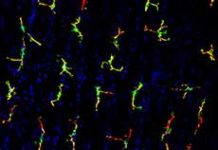No significant increase in all-grade haematologic toxicity was found with the addition of an anti-PD1/PD-L1-based or anti-CTLA4-based therapy to chemotherapy as compared to chemotherapy alone in patients with solid tumours, according to findings presented at the ESMO Immuno-Oncology Virtual Congress 2020, held from 9 to 12 December 2020.
Lead poster author Daniel Eiger of the Clinical Trials Support Unit, Institut Jules Bordet in Brussels, Belgium noted that combination of immunotherapy and chemotherapy has become a standard treatment option in several settings, but whether there is an additive toxicity effect had not been sufficiently investigated. This question prompted an evaluation of treatment-induced myelotoxicity and immune-mediated cytopenias due to the addition of an immune checkpoint inhibitor (ICI) to chemotherapy.
This meta-analysis initiated a systematic review of the MEDLINE and Cochrane databases as well as conference proceedings, according to a manual selection of studies presented at major congresses, that occurred up to 5 June 2020. The review was restricted to English language publications and included randomised clinical studies comparing immunotherapy/chemotherapy combinations to chemotherapy in patients with solid tumours.
The main endpoints of the analysis included all-grade anaemia, neutropenia, febrile neutropenia (FN), and thrombocytopenia. The same cytopenias grouped by grades 1 to 2, 3 to 4, and 5 served as the other endpoints. Subgroup analyses were performed according to the class of ICI and a sensitivity analysis that excluded trials with a different number of cycles of chemotherapy between arms was done. Random effects models were used in pooled odds ratio (pOR) and confidence interval (CI) calculations.
The incidence of all-grade cytopenia was not increased with the addition of an immunotherapy to chemotherapy
The investigators identified 19 publications; of these, 14 assessed anti-PD1/PD-L1-based immunochemotherapy and 5 evaluated an anti-CTLA4-based combination, with a total of 5254 patients in the immunotherapy/chemotherapy arm and 4316 in the chemotherapy arm.
Comparison of the immunotherapy/chemotherapy and chemotherapy arms provided pooled incidences of all-grade cytopenias. The specific incidences were: Anaemia 42% versus 38%, neutropenia 33% versus 30%, FN 7% versus 5%, and thrombocytopenia 20% versus 17%, respectively.
No significant increase in the odds of all-grade adverse events (AEs) was found for immunotherapy/chemotherapy compared to chemotherapy in any of the cytopenias evaluated: Anaemia (pOR 1.04; 95% CI 0.90-1.21; p = 0.58), neutropenia (pOR 1.01; 95% CI 0.87-1.16; p = 0.94), FN (pOR 1.24; 95% CI 0.97-1.58; p = 0.09), and thrombocytopenia (pOR 1.14; 95% CI 1.00-1.30; p = 0.06). No significant increase in the odds of G1-2, G3-4, and G5 adverse events (AEs) were found as well.
In subgroup analysis according to major class of ICI (anti-PD(L)1-based immunotherapy/chemotherapy and anti-CTLA-4-based immunotherapy/chemotherapy), only a small albeit statistically significant increment in the odds of all grade thrombocytopenia was found with an anti-PD1/PD-L1-based immunotherapy/chemotherapy compared to chemotherapy (pOR 1.18; 95% CI 1.02-1.36; p = 0.03).
The sensitivity analysis provided similar results.
Conclusions
The authors of the poster wrote that, apart from a small increase in the odds of all grade thrombocytopenia with anti-PD1/PD-L1-based immunochemotherapy, the combination of an immunotherapy plus chemotherapy appears to be as safe as chemotherapy in terms of haematological toxicities.
No external funding was disclosed.
Reference
44P – Eiger D, Agostinetto E, Caparica R, et al. The hematologic toxicities of chemo-immunotherapy compared to chemotherapy alone: A systematic review and meta-analysis. ESMO Immuno-Oncology Virtual Congress 2020 (9-12 December).







